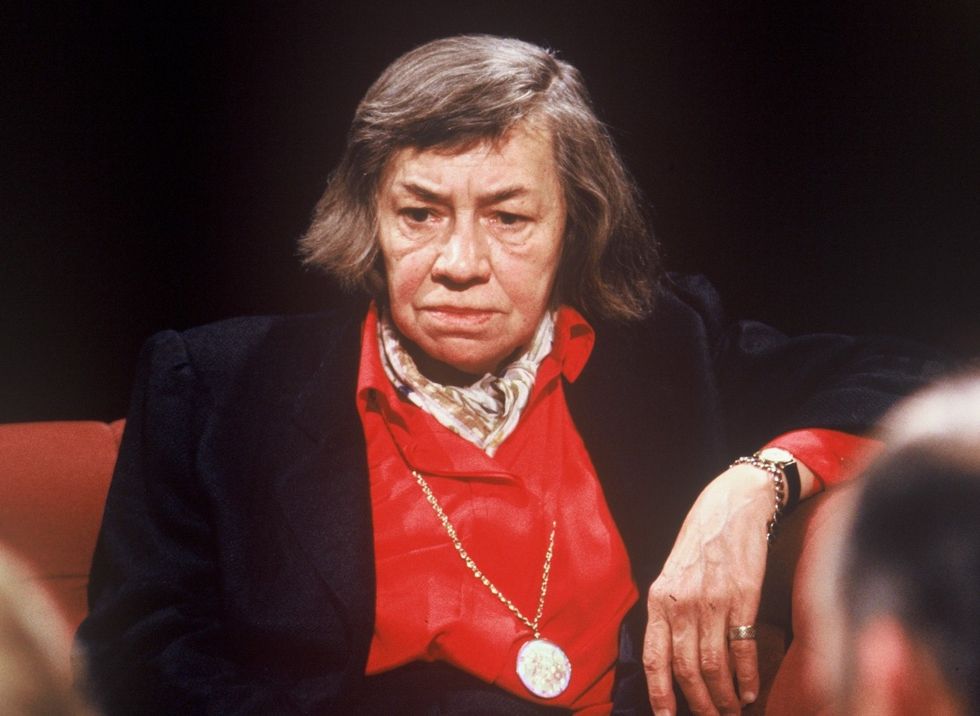Publishing her first novel -- the cultural classic "Strangers on a Train" -- in 1950, Patricia Highsmith is forever renowned for her psychological thrillers that also include the much revered Tom Ripley Series. Drawing much of her influence from existential literature, Highsmith's style became trademarked for her exploration of personal identity against the white noise of popular morality.
However, much like her fellow literary peer James Baldwin, Highsmith is also credited for as one of very few writers of her time who gave voice to the LGBT community. With the circulation of her novel "The Price of Salt" two years after her first book which was issued under the pseudonym Claire Morgan, it became the first work in the canon of American Literature where a lesbian story was permitted to have a happy ending. Tailored into the motion picture "Carol" in 2015, Highsmith's 22 novels and countless short stories have since, received more than two dozen adaptions in the realm of cinema. Forever rendering the native of Fort Worth, Texas a living memory forever captured in words and pictures.
1. “I know what they'd like, they'd like a blank they could fill in. A person already filled in disturbs them terribly.”
Gaining renown in a time where mass conformity and consumption all but consumed Americans into conforming, Highsmith prominence came during an era where there was very little room for individualism. Especially as a closeted homosexual living in an America dominated by the conservative concept of nuclear family.
2. “He liked the fact that Venice had no cars. It made the city human. The streets were like veins, he thought, and the people were the blood, circulating everywhere.”
The true worth and dignity lie not in what you own, and what you own can do for you, but rather on your ability to exercise the capacities within you. Capacities that can take you to deeper places. Higher places.
3. “It would be Carol, in a thousand cities, a thousand houses, in foreign lands where they would go together, in heaven and in hell.”
Love. It transcends the windows of every house, the limit of every city, the border of every country, and what we believe about it -- no matter how long we have believed as much as we have believed in it. Love transcends everything. Regardless of whether it remains, or is indeed something more finite.
4. “Then Carol slipped her arm under her neck, and all the length of their bodies touched fitting as if something had prearranged it. Happiness was like a green vine spreading through her, stretching fine tendrils, bearing flowers through her flesh. She had a vision of a pale white flower, shimmering as if seen in darkness, or through water. Why did people talk of heaven, she wondered”
Beneath the sunlight, there is hardly a person or a thing bereft from the blemish cast by a shred shadow. But it is in the darkness, beneath the cold, pale stare of the moon, where people and things come to life. To shine, and to shine bright, if not at their brightest. Brighter than the bright in the day that prevents us from seeing things, and people that have been the bright of this world for generations past, and many yet still to come.
5. “It always gets late with you - is that a compliment?”
There's always time for love. No matter what time it is. Like all things timeless, love always has time.
Critical of a world defined by rules for much of her career, Patricia Highsmith's legacy forever endures. In words and pictures where she remains a living memory. A memory that lives to remind us that there is no rule to deny us happiness from the world we exist and live in. If first, we can only come to the realization that we are meant to live because we exist.
- Strangers on a Train Movie Review (1951) | Roger Ebert ›
- The Bizarre True Story Behind “The Talented Mr. Ripley” ›
- The Talented Mr. R - Left Magazine ›
- Carol: the women behind Patricia Highsmith's lesbian novel | Books ... ›
- Patricia Highsmith's Forbidden Love | The New Yorker ›
- 10 Best Patricia Highsmith Books ›
- Patricia Highsmith - The New York Times ›




 StableDiffusion
StableDiffusion StableDiffusion
StableDiffusion StableDiffusion
StableDiffusion Photo by
Photo by  Photo by
Photo by  Photo by
Photo by 
 Photo by
Photo by  Photo by
Photo by  Photo by
Photo by  Photo by
Photo by  Photo by
Photo by 











